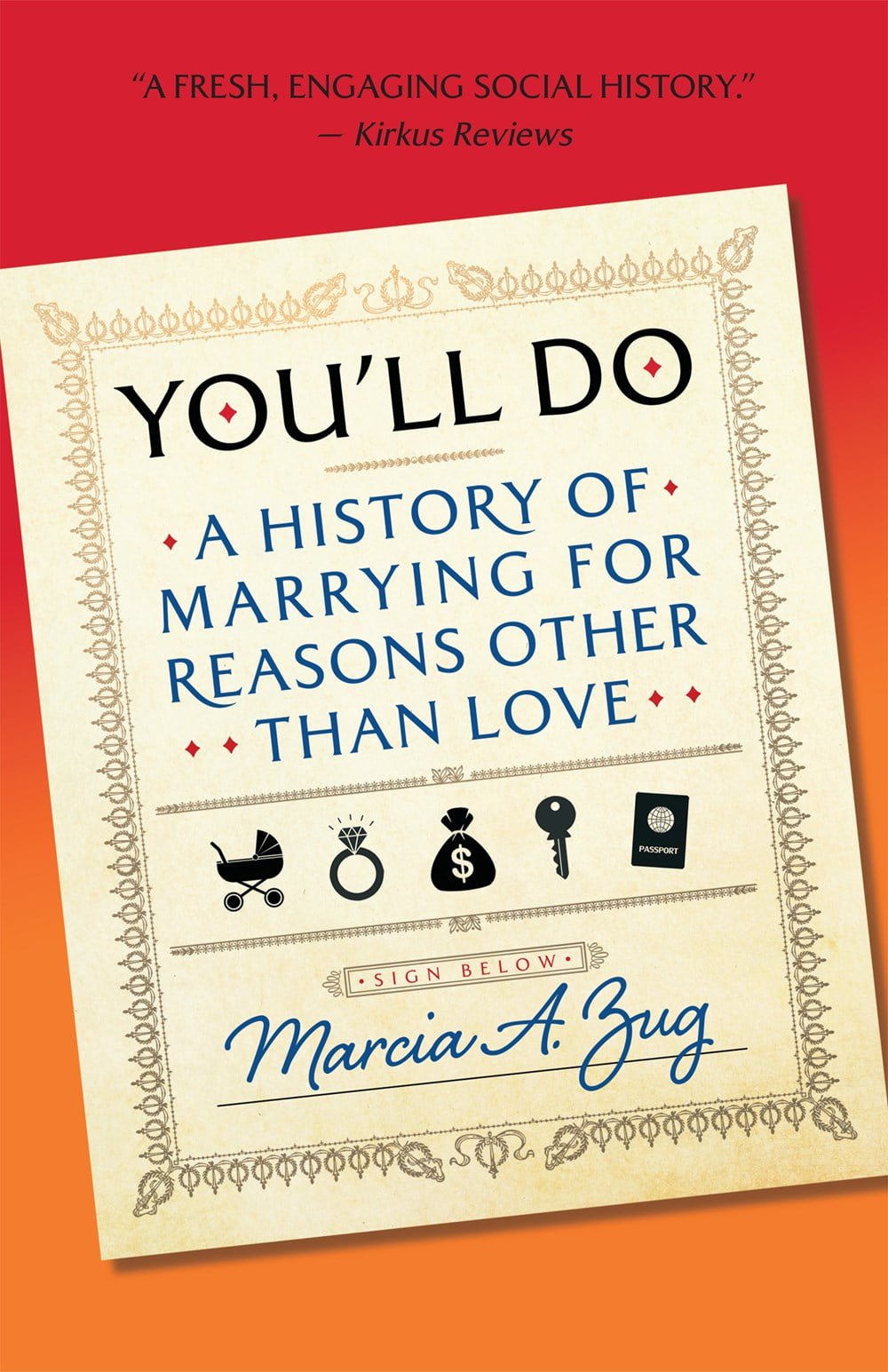Introduction to You’ll Do by Marcia A. Zug
Marriage, as an institution, is often portrayed as the culmination of romantic love. However, Marcia A. Zug’s book, You’ll Do, challenges this conventional notion by offering an illuminating and informative cultural history of marriage. Drawing inspiration from her great-aunt Rosie, Zug provides a clear-eyed look into the many non-romantic reasons why people have historically married in America.

Marriage Beyond Romantic Love
In You’ll Do, Zug explores how marriage has been used as a means to circumvent discriminatory laws, gain financial support, secure government benefits, and acquire social status, among other reasons. Her research delves deeply into historical and contemporary cases where marriage served a purpose far beyond love. Zug’s own inspiration came from her great-aunt Rosie, who married her best friend’s brother in 1937 Nazi Germany to bring him to safety in the U.S.
The Dark Sides of Marriage
Zug doesn’t shy away from the darker aspects of marriage in America. She reveals numerous instances where marriage furthered racial, gender, and class oppression. The book recounts many unsettling stories, like the Osage Indian women who were married and murdered by white men in early 20th-century Oklahoma, and domestic violence cases dismissed because they occurred within a marriage. These stories highlight how marriage has sometimes perpetuated societal inequities.
Compelling Insights and Cultural Commentary
Throughout the book, Zug offers a multitude of intriguing anecdotes and scholarly analyses. For instance, she points out that early American men were often interested in marrying for money, leading to anti-gold-digging laws. Benjamin Franklin’s disdain for bachelors contrasts sharply with modern views, and even recent events, like Donald Trump’s wedding banner, underscore the enduring complexity of marital relationships.
Conclusion: A Must-Read Perspective
You’ll Do is an enlightening read that invites us to broaden our understanding of marriage in America. Marcia A. Zug’s extensive research, combined with compelling narratives, makes this book a must-read for anyone interested in the history and societal implications of marriage.


